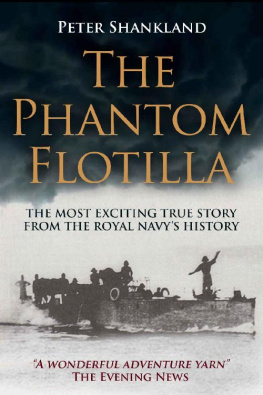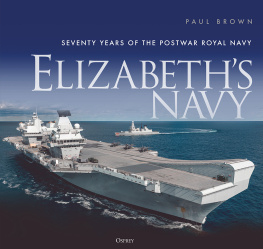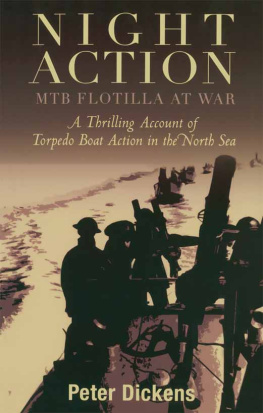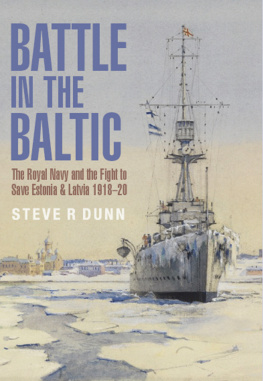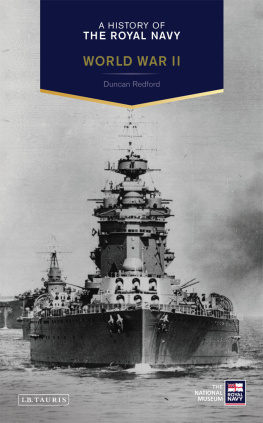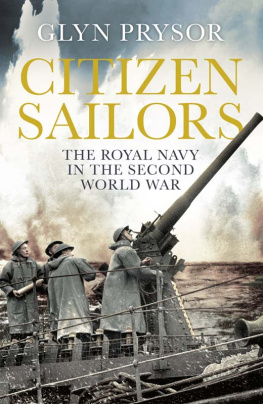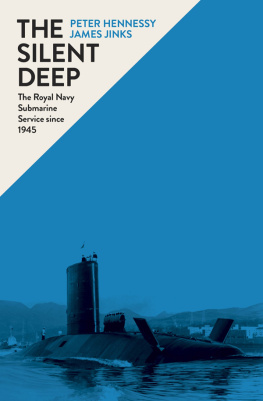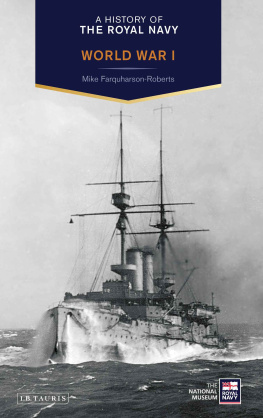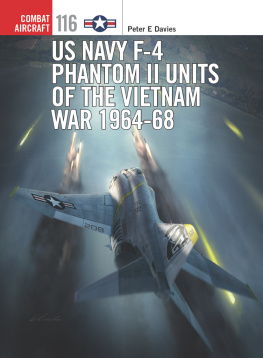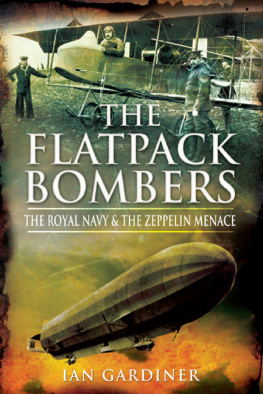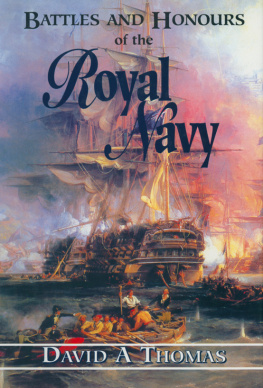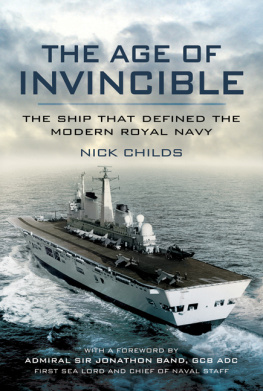Peter Shankland - The Phantom Flotilla: The most exciting true story from the Royal Navy’s history
Here you can read online Peter Shankland - The Phantom Flotilla: The most exciting true story from the Royal Navy’s history full text of the book (entire story) in english for free. Download pdf and epub, get meaning, cover and reviews about this ebook. year: 0, genre: History. Description of the work, (preface) as well as reviews are available. Best literature library LitArk.com created for fans of good reading and offers a wide selection of genres:
Romance novel
Science fiction
Adventure
Detective
Science
History
Home and family
Prose
Art
Politics
Computer
Non-fiction
Religion
Business
Children
Humor
Choose a favorite category and find really read worthwhile books. Enjoy immersion in the world of imagination, feel the emotions of the characters or learn something new for yourself, make an fascinating discovery.
- Book:The Phantom Flotilla: The most exciting true story from the Royal Navy’s history
- Author:
- Genre:
- Year:0
- Rating:4 / 5
- Favourites:Add to favourites
- Your mark:
- 80
- 1
- 2
- 3
- 4
- 5
The Phantom Flotilla: The most exciting true story from the Royal Navy’s history: summary, description and annotation
We offer to read an annotation, description, summary or preface (depends on what the author of the book "The Phantom Flotilla: The most exciting true story from the Royal Navy’s history" wrote himself). If you haven't found the necessary information about the book — write in the comments, we will try to find it.
Peter Shankland: author's other books
Who wrote The Phantom Flotilla: The most exciting true story from the Royal Navy’s history? Find out the surname, the name of the author of the book and a list of all author's works by series.
The Phantom Flotilla: The most exciting true story from the Royal Navy’s history — read online for free the complete book (whole text) full work
Below is the text of the book, divided by pages. System saving the place of the last page read, allows you to conveniently read the book "The Phantom Flotilla: The most exciting true story from the Royal Navy’s history" online for free, without having to search again every time where you left off. Put a bookmark, and you can go to the page where you finished reading at any time.
Font size:
Interval:
Bookmark:
THE PHANTOM FLOTILLA
Peter Shankland
Peter Shankland 1968
Peter Shankland has asserted his rights under the Copyright, Design and Patents Act, 1988, to be identified as the author of this work.
First published in 1969 by Mayflower Books Ltd.
This edition published in 2018 by Endeavour Media Ltd.
Table of Contents
Chapter One
One morning early in June 1915 Dr. H. M. Hanschell found a scribbled message on his desk at the Seamans Hospital in the Royal Albert Dock, requesting him to go at once to the Admiralty and see Commander Spicer-Simson. He stood for a few moments looking at the message, thinking of all he had intended to do that dayhe was Acting Medical Superintendent of the hospitaland wondering whether to go or not.
He knew Commander Spicer-Simson wellhe was a big man with light-grey eyes, and rounded shoulders that gave him the appearance of a slight stoop. In spite of this he was unmistakably a Naval Officer though there were some puzzling aspects to his character also. They had become acquainted about five years previously when they were both staying at a modest little residential hotel just off Russell Square: their wives meeting there by chance after many years had renewed a girlhood friendship and introduced their respective husbands. At that time Spicer was down on his luck. After being a watchkeeping officer in H.M.S. Albion while she was refitting, and then in H.M.S. Caesar in a similar capacity, he was without an appointment. He was spending his time trying to get the recommendations from two admirals that were necessary for his promotion: he succeeded in getting thembut no promotion followed, and he had the mortification of being passed over again and again for younger men. It became clear to everyone, including Spicer himself, that his career was at an end: to use his own term, he was beached.
In these cheerless circumstances he seemed to like the society of the Hanschells, perhaps because they had nothing to do with the Navy, and he enjoyed telling them about his varied experiences in many distant lands. The doctor listened to his stories, sometimes with amusement, sometimes with real admiration, and always with sympathy, for he realised that Spicer was enormously proud of the service to which he belonged, that he was utterly devoted to it, and that the urge to talk about himself was the natural result of his galling disappointments. He suffered under the strain of waiting endlessly for promotion that never came. Deepening lines of care and disillusionment appeared among the seasoned wrinkles of the weather-beaten mariner, and he developed a regrettable tendency to bully waiters and cloakroom attendants for imaginary offences.
In spite of all the evidence to the contrary, the Doctor did not subscribe to the general opinion that Spicer was beached. He had a feeling, quite irrational no doubt and the result of wishful thinking, that fate held something significant in store for him that would provide a fitting climax to his adventurous career: but when he did receive an appointmentan offer from the Colonial Office of employment on the Gambia River where it was carrying out a surveyit brought with it no prospect of promotion and offered him little opportunity to win the glory he so ardently longed for. He accepted it, however, and set out with his wife in a small survey vessel, passing through the canals of France to the Mediterranean and thence to the West Coast of Africa where he remained four years.
He had no sooner returned to England, in August 1914, than the Great War broke out and he found that naval officers were at a premium. He was appointed to H.M. Contraband Control Vessel Harrier as Deputy Senior Naval Officer, and then promoted to Senior Naval Officer of the Downs Boarding Flotilla which consisted of two gunboats and six boarding tugs based at Ramsgate. He had thus gained at last quite a respectable positionbut a mischievous fortune seemed determined to invest everything he did with a faint tinge of absurdity. One day, less than a fortnight after assuming command, he happened to be ashore entertaining some ladies in a hotel, and from the window he could see one of his gunboats, H.M.S. Niger , lying in The Downs to the eastward of Deal Bank Buoy where he had ordered her to anchor. The scene could hardly have been more peaceful. The weather was clear with a fresh south-westerly wind and a moderately rough sea. A Dutch and a French steamer were anchored close to the Niger , a sailing ship lay farther to the south, and there was a fair amount of traffic in both directions. Suddenly the Niger was torpedoed. She sank in less than twenty minutes, and Spicer was given a job behind a desk at the Admiralty in the Intelligence Division. Once again he was beached.
But the Doctor could not shake off the feeling that he was not beached. He sensed in his friend a quality that made him uneasy sometimes, and fascinated him always: in spite of all his defects, Spicer seemed to him potentially a hero. And so it was that within a few hours of receiving the telephone message he was sitting in a dingy office at the Admiralty which Spicer shared with a Major of the Royal Marines.
Light filtered through the upper part of a dusty window and showed its meagre furnishinga filing cabinet, an empty fire grate with a bare yellow mantelpiece, and above it a signed photograph of His Majesty the King in a heavy frame. There were two swivel armchairs, and two desks piled high with papersit appeared that it was only the room, and not Spicer, that was in the Intelligence Division, for the papers dealt with the transfer of Merchant Marine Officers and Seamen to the Royal Naval Reserve. A cracked teapot on a tray with two empty cups was perched on a corner of the mantelpiece.
Spicer greeted the Doctor warmly in his natural jovial voice: this was a sign that things were going well for himhe usually affected a rather supercilious nasal drawl. He looked ten years younger and he was bubbling over with excitement. First he introduced him to the Major of the Marines who answered curtly and went on with his work. Next he warned him that everything he was about to say must be treated with the utmost secrecy, and announced that he had just been appointed to command a naval expedition to Lake Tanganyika in the heart of Africa; and of course his good friend Dr. Hanschell, who was eminently qualified for the job, must come along with him as his Medical Officer. And how do you think I got the command? he asked. Simply by eavesdropping! He laughed triumphantly. Admiral Gamble came in here to offer it to my colleague (he indicated the Major with a nod). I listened on tenterhooks, for I saw at once what a chance it would be for me. When, much to my relief, the Major turned it down, I stepped up and offered to go in his place! The Major looked up and tapped his forehead to indicate that in his opinion Spicer was mad to take it on.
The significance of Lake Tanganyika, Spicer explained, was that it formed the boundary between the Belgian Congo and German East Africa. It was dominated by a German gunboat, the Hedwig von Wissmann , and no Allied vessel could be brought against her because the only completed railway to the Lake was in German territory. Consequently the Germans raided as they pleased along the Belgian side of the Lake, and also at the southern end which was in Northern Rhodesia. Neither the British forces to the South of the Lake, nor the British and Belgian forces to the north of it, could advance into German East Africa because enemy troops could be landed behind them to cut their communications. An amazing situation, isnt it? he asked. One German gunboat dominating Central Africa! It had become an absolute military necessity to destroy the Hedwig von Wissmann and Spicer had been ordered to do it.
He unfolded to the Doctor one of the most fantastic projects that had ever been hatched, even at the Admiralty. Were going to take out two motor-boats, he said, with guns and stores to Cape Town by sea, thence by rail to Elizabethville... (he pulled out a rather large Batholomew school atlas, old and well thumbed, the pages gone brown and yellow)... but soon after that the railway line comes to an end, and theres a rather difficult stretch of more or less virgin bush to be surmounted, about 150 miles... While he was speaking he traced out the route with a pencil point, drawing a line on the map between Elizabethville and the Lualaba River, then down the river for about 200 miles to Kabalo, and thence by another short railway journey to the Lake. All that the Doctor could make out was that it was near the equator, just south of it, and in the centre of Africa. It will be all thick bush and trees, he thought, and perishing hot, with tsetse fly and malaria. He hadnt caught the place names, but the words Lualaba River worked like magicthey were to follow in the footsteps of Livingstone and Stanley!
Next pageFont size:
Interval:
Bookmark:
Similar books «The Phantom Flotilla: The most exciting true story from the Royal Navy’s history»
Look at similar books to The Phantom Flotilla: The most exciting true story from the Royal Navy’s history. We have selected literature similar in name and meaning in the hope of providing readers with more options to find new, interesting, not yet read works.
Discussion, reviews of the book The Phantom Flotilla: The most exciting true story from the Royal Navy’s history and just readers' own opinions. Leave your comments, write what you think about the work, its meaning or the main characters. Specify what exactly you liked and what you didn't like, and why you think so.

